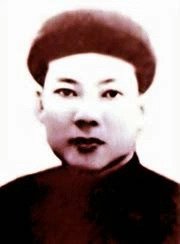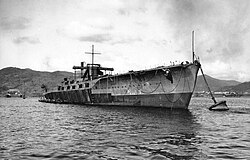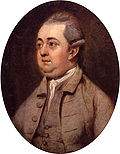Portal:History
The History Portal

Historia by Nikolaos Gyzis
History is the systematic study of the past, focusing primarily on the human past. As an academic discipline, it analyses and interprets evidence to construct narratives about what happened and explain why it happened. Some theorists categorize history as a social science, while others see it as part of the humanities or consider it a hybrid discipline. Similar debates surround the purpose of history—for example, whether its main aim is theoretical, to uncover the truth, or practical, to learn lessons from the past. In a more general sense, the term history refers not to an academic field but to the past itself, times in the past, or to individual texts about the past.
Historical research relies on primary and secondary sources to reconstruct past events and validate interpretations. Source criticism is used to evaluate these sources, assessing their authenticity, content, and reliability. Historians strive to integrate the perspectives of several sources to develop a coherent narrative. Different schools of thought, such as positivism, the Annales school, Marxism, and postmodernism, have distinct methodological approaches.
History is a broad discipline encompassing many branches. Some focus on specific time periods, such as ancient history, while others concentrate on particular geographic regions, such as the history of Africa. Thematic categorizations include political history, military history, social history, and economic history. Branches associated with specific research methods and sources include quantitative history, comparative history, and oral history.
History emerged as a field of inquiry in antiquity to replace myth-infused narratives, with influential early traditions originating in Greece, China, and later in the Islamic world. Historical writing evolved throughout the ages and became increasingly professional, particularly during the 19th century, when a rigorous methodology and various academic institutions were established. History is related to many fields, including historiography, philosophy, education, and politics. (Full article...)
Featured picture
Did you know (auto generated)

- ... that throughout the history of education in Wales, schools have been held in monastic settlements, cathedrals, residential houses, marketplaces, barns, churches, and village halls?
- ... that Songs and Flowers of the Wasatch represented a shift in Mormon history toward a "socially-accepted American cultural and religious heritage", according to historian Jennifer Reeder?
- ... that Galena Schoolhouse in South Dakota was once leased to a historical society for $1 annually?
- ... that Narita Viliamu Tahega has won 38 medals in international weightlifting competitions, the most in the history of Niue athletics?
- ... that Group A of the 2006 FIFA World Cup featured the highest-scoring opening game in World Cup history since the competition began using a single match opening format?
- ... that a 2001 book shares the history of a small Tudor community through a 54-year-long "running commentary" by "a somewhat unamiable busybody"?

Ngô Đình Cẩn (Vietnamese: [ŋo˧ ɗɨ̞̠n˦˩ kəŋ˦˩]; 1911 – 9 May 1964) was the younger brother and confidant of South Vietnam's first president, Ngô Đình Diệm, and an important member of the Diệm government. Diệm put Cẩn in charge of central Vietnam, stretching from Phan Thiết in the south to the border at the 17th parallel, with Cẩn ruling the region as a virtual dictator. Based in the former imperial capital of Huế, Cẩn operated private armies and secret police that controlled the central region and earned himself a reputation as the most oppressive of the Ngô brothers.
In his youth, Cẩn was a follower of the nationalist Phan Bội Châu. In the late 1940s and early 1950s, he worked to organise support for Diệm as various Vietnamese groups and international powers sought to stamp their authority over Vietnam. Cẩn, who succeeded in eliminating alternative nationalist opposition in central Vietnam, became the warlord of the region when his brother became president of the southern half of the partitioned nation in 1955. He became notorious for his involvement in smuggling and corruption, as well as his autocratic rule. Cẩn was regarded as an effective leader against the Viet Cong communist insurgency, which was much weaker in central Vietnam than in other parts of South Vietnam. His Popular Force militia was regarded by US officials in central Vietnam as a successful counter to the communists. (Full article...)
On this day
May 1: Beltane and Samhain in the Northern and Southern Hemispheres, respectively; Maharashtra Day in Maharashtra, India (1960); International Workers' Day, Law Day, Loyalty Day and National Day of Prayer (2025) in the United States
- 305 – Diocletian and Maximian retired as co-rulers of the Roman Empire, being succeeded by Galerius and Constantius Chlorus.
- 1794 – War of the Pyrenees: France regained nearly all the land it lost to Spain the previous year with its victory in the Second Battle of Boulou.
- 1931 – New York City's Empire State Building (pictured), at the time the tallest building in the world, opened.
- 1974 – Argentine president Juan Perón expelled Montoneros from a demonstration in the Plaza de Mayo in Buenos Aires, forcing the group to become a clandestine organization.
- Alexander William Williamson (b. 1824)
- Anna Jarvis (b. 1864)
- Eldridge Cleaver (d. 1998)
Selected quote
What we find in books is like the fire in our hearths. We fetch it from our neighbors, we kindle it at home, we communicate it to others, and it becomes the property of all.
— Voltaire, 18th century French philosopher
Related portals
More Did you know...
- ... that Giovanni de Ventura, a plague doctor who may have worn a beak doctor costume (pictured), was restricted by a covenant to treat only infectious patients? In the nose of the mask, there were types of plants that were used to filter the sickness from the wearer.
- ... that in some archaic Greek alphabets, an Ε could look like a Β, a Β like a C, a Γ like an Ι, an Ι like a Σ, or a Σ like an Μ?
- ... that the Chinese government has published a list of sixty-four important cultural relics that are forbidden to be exhibited outside of China?
- ... that the 1886 novel Albertine expedited the abolition of public prostitution in Norway?
- ... that Carl Sagan worked with the US Air Force on detonating a nuclear device on the Moon?
- ... that Olympic gold medals have been made out of silver, jade, and glass?
- ... that in 1945 a Japanese battalion was rearmed to serve alongside the British 5th Parachute Brigade in the Far East?
- ... that Solomon was accidentally castrated as an infant?
Topics
Categories

History • By period • By region • By topic • By ethnic group • Historiography • Archaeology • Books • Maps • Images • Magazines • Organizations • Fictional • Museums • Pseudohistory • Stubs • Timelines • Chronology • People • Wikipedia historians
WikiProjects
![]() WikiProject History •
Ancient Near East • Australian History • Classical Greece and Rome • Dacia • Former countries • History of Canada • Chinese history • European history • Heraldry and vexillology • Indian history • Jewish history • Medieval Scotland • Mesoamerica • Military history • Middle Ages • History of Science
WikiProject History •
Ancient Near East • Australian History • Classical Greece and Rome • Dacia • Former countries • History of Canada • Chinese history • European history • Heraldry and vexillology • Indian history • Jewish history • Medieval Scotland • Mesoamerica • Military history • Middle Ages • History of Science
WikiProject Time • Days of the Year • Years
WikiProject Biography • Composers • Political figures • Saints • United States Presidents
Things you can do
 |
Here are some tasks awaiting attention:
|
Associated Wikimedia
The following Wikimedia Foundation sister projects provide more on this subject:
-
Commons
Free media repository -
Wikibooks
Free textbooks and manuals -
Wikidata
Free knowledge base -
Wikinews
Free-content news -
Wikiquote
Collection of quotations -
Wikisource
Free-content library -
Wikiversity
Free learning tools -
Wiktionary
Dictionary and thesaurus























































